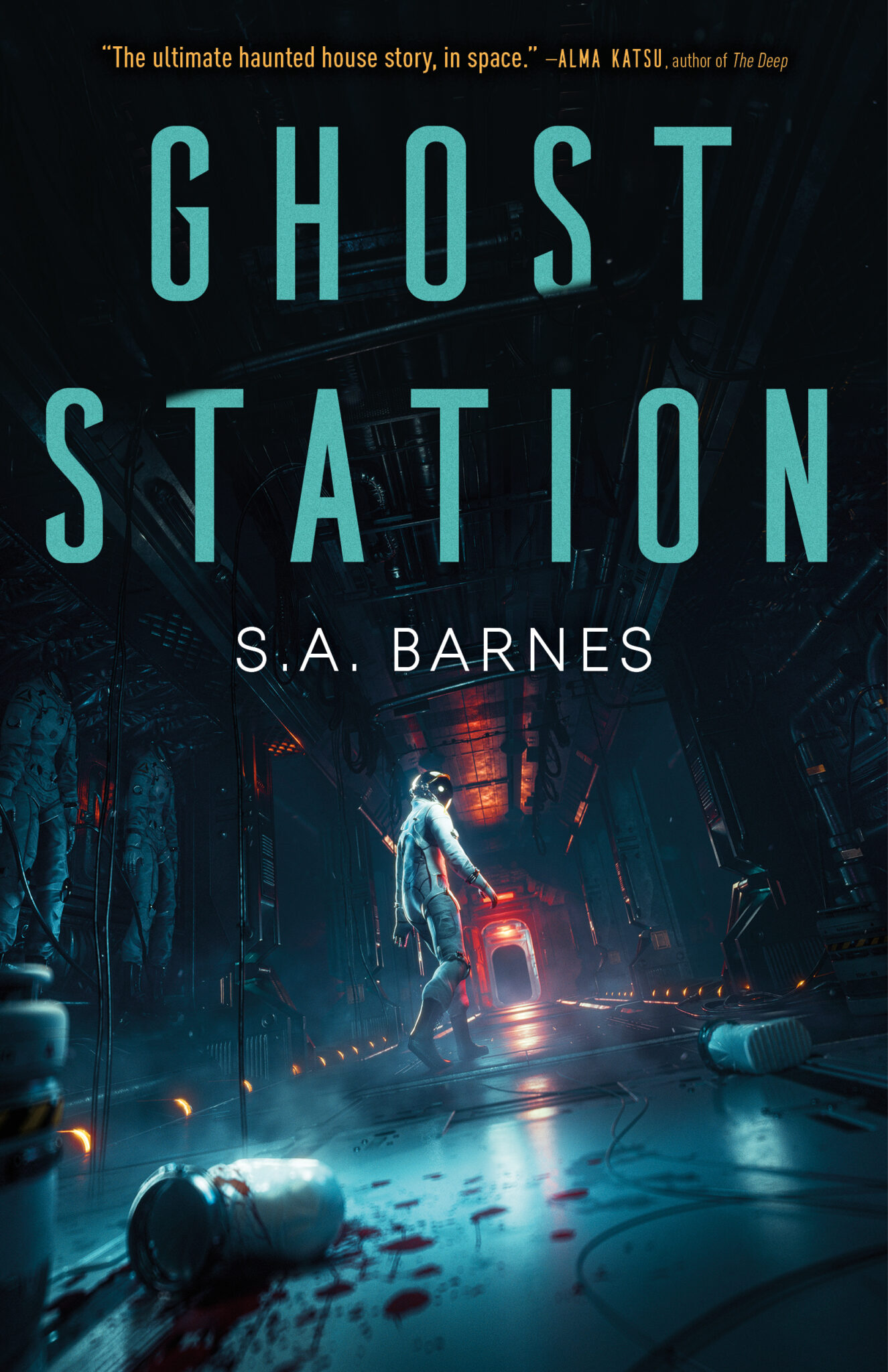Ghost Station is the new science fiction horror novel by S.A. Barnes. It follows Dr. Ophelia Bray, a psychiatrist, to an empty planet. Her mission there is straightforward: help a research team through the loss of their crewmember and stop them from going insane. Is paranoia a symptom if something is actually out there, though? Find out when Ghost Station arrives from Tor Nightfire on April 9, 2024.
Ophelia feels more like a first person narrator than a third person one. When I say it follows her, I do mean closely. So much of this book takes place in her head. I’d even go so far as to argue that the main plot of this novel is closer to a drama or a romance than a horror novel. There are inexplicable, concerning things happening around Ophelia, they just aren’t given the same weight as her internal narration. Much more interesting to her: her past, her family, her secrets, her patients. One of those patients in particular captures her attention.
Ethan, the mission leader, is set up to be her love interest from their first meeting. The way he is described, the things she notices—these are hallmarks of a romance. But this book isn’t a romance, or wasn’t marketed as one, anyway. And I did not feel satisfaction for how it did, or didn’t, play out. I won’t give spoilers, here, but I struggled with understanding why so much time was given to their dynamic. And theirs isn’t the only one.

The point of Ophelia’s presence on this mission is, well, emotions. She is there in a therapeutic capacity. So it does make sense that she is focused on how the team interacts, how they are feeling. It just felt like a weird choice of narrator for this story, I guess. Maybe it’s just my limited experience with the sci-fi horror genre, though. I’m not saying I was expecting Ripley, but I was expecting someone who could put the pieces together a little better.
Because that’s what I would look for in this setting, with this setup. I want a protagonist who can look at data and see that there is an issue. Someone who understands the tech, the planet, the species, something. Otherwise, we’re relying on the fear of the unknown, but without knowledge of the known. There is fear in not understanding something, but there is more fear in recognizing something is wrong. And she does think that something is wrong. It’s just not what would make this feel like a horror story.
Ophelia is looking for paranoia. She is looking for a type of mental break. So many of the supposed scares in this book—they aren’t real. They’re fakeouts. But this also isn’t a story of madness, which absolutely could have been done here. In fact, Ophelia as a narrator would have made sense in that type of story. But because there were other factors, none of the choices really landed in a way I found satisfying or compelling. I wasn’t scared because I expected things to be immediately explained away. By the time they could actually be scary, I wasn’t invested.
I also really was not invested in Ophelia’s quest for her own psychological healing and development. And, unfortunately for me, that’s what this book was really about. If that is something you are interested in, or at least are expecting, you may enjoy this more than I did. But if you’re wanting a tension filled science fiction horror story, I would look elsewhere. Like Ophelia, it just didn’t seem like this book knew what it wanted to be.
Photo courtesy of Tor Nightfire.
Have strong thoughts about this piece you need to share? Or maybe there’s something else on your mind you’re wanting to talk about with fellow Fandomentals? Head on over to our Community server to join in the conversation!

